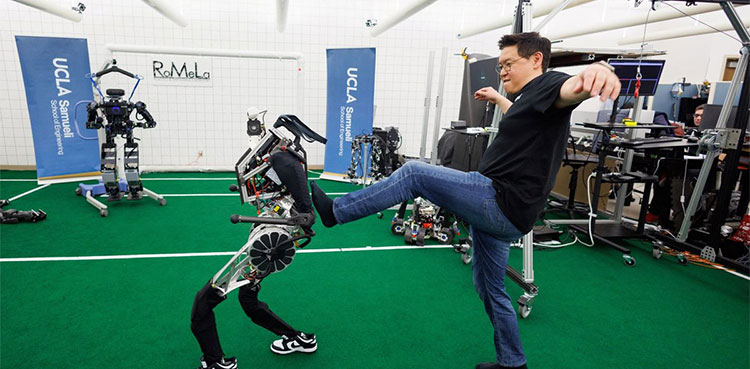
Using cutting edge technology, ARTEMIS, which stands for Advanced Robotic Technology for Enhanced Mobility and Improved Stability, can maintain its balance against heavy kicks and shoves, withstand objects being thrown at it and is capable of running. But what sets ARTEMIS apart on top of that is its ability to kick a ball.
“If your robot cannot even play a game of soccer, how would you be able to use these robots for more important things, such as saving people’s lives?” said Dennis Hong, professor of mechanical and aerospace engineering and director of the Robotics and Mechanisms Laboratory (RoMeLa) at UCLA, which developed ARTEMIS.
The technologies used for soccer playing robots are also being used for other applications like firefighting and disaster relief, said Hong.
While ARTEMIS may not be at the next FIFA World Cup, Hong’s team will be unveiling its full soccer capabilities at RoboCup in Bordeaux, France, in July.
The robot’s major innovation is that the engineers custom-designed its actuators — devices that generate motion from energy — to behave like biological muscles. They are springy and force-controlled, rather than the rigid, position-controlled actuators that most robots have.
ARTEMIS’ actuators are also unique in that they are electrically driven, rather than controlled by hydraulics. That means it is quieter and operates more efficiently, while also being cleaner, because hydraulic systems are notorious for leaking fluids.
RoMeLa student Justin Quan said his personal goal is engineering robots that improve people’s lives.
“Seeing these robots helping push the robot technology to that next level is really rewarding because you’re like, oh, the dream, it gets closer,” he said.
from Science and Technology News - Latest science and technology news https://ift.tt/uTNseVf


0 Comments